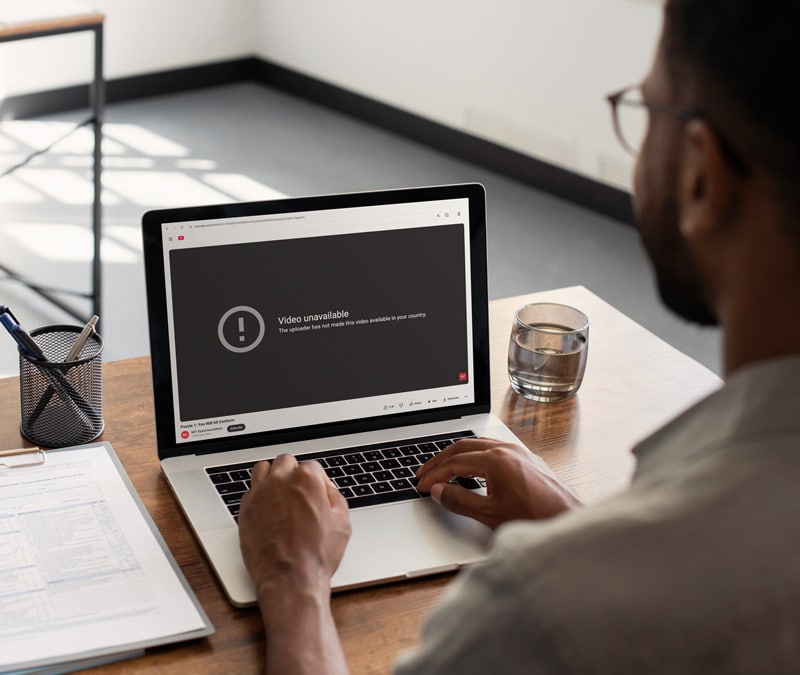Does a VPN use data? Short answer? Yes
Using a VPN will count against the data limits on your smartphones or tablets. But VPNs offer many benefits.

There are many benefits of using a VPN to connect to the internet. These networks, better known by the acronym VPN, hide your IP address and boost your privacy while browsing. They may also help you access online content that is restricted in your region. But there's one thing VPNs can't do: They can't help you avoid pushing past the limit on your data plan.
The reason? Using a VPN will count against the data limits on your smartphones or tablets. That's because the data that you access through these devices must first travel through the servers of your internet service provider or mobile provider before it reaches the server of your VPN provider.
This doesn't mean, though, that you shouldn't invest in a VPN. Those other benefits of relying on VPNs far outweigh the disappointment that such a network still counts against your data plan's caps.
What is a VPN, and why should you use it?
A VPN is an important tool if you want privacy while online, especially if you are logging on from a public space such as your local library, an airport, hotel lobby, or coffee shop.
You'll first have to sign up with a VPN provider. Once you do, you'll log onto that provider's service before connecting to the internet. If you do this, your IP address will be hidden from hackers, businesses, government agencies, or other snoops. VPNs also encrypt the data you send and receive, scrambling it so that these same snoops can't see the sites you visit, files you download, messages you post, or videos you watch.
Most VPN providers charge for their services. This price is worth it, though, for that increase in privacy while surfing the web.
Do VPNs use data?
If you regularly access the internet from your phone or a tablet, you probably rely on a data plan, at least some of the time, to visit sites, watch movies, and send email. It's not surprising, then, that you want to use as little data as possible. Most data plans still come with caps. Going over these caps can cost you extra fees or slow your online speed to a crawl.
Unfortunately, using a VPN to get online doesn't mean you can forget about data caps. Browsing the internet, listening to music, downloading videos, and streaming movies will still count against any data limits set by your providers, whether you're using a VPN or not.
And here's a negative: You'll use slightly more data with a VPN because this service encrypts your data. That's an important privacy feature. But it does mean that using a VPN will grow the amount of data you consume by anywhere from 5 percent to 15 percent, according to some estimates.
The data benefits of a VPN
Using a VPN does come with one positive related to data usage. Because your internet service provider — or ISP — can't see what you're doing online, it also can't use data throttling to slow down your online speeds.
If you’re a particularly heavy internet user who spends hours downloading videos or playing online games, your ISP might decide to throttle your data. Basically, this will slow your online speeds, which can make your online session a frustrating one. They might do this as a way to persuade you to purchase a pricier internet plan that doesn’t come with these slowdowns.
But if you're connected to the internet through a VPN, your ISP won't know and won’t see your IP address and won’t recognize you as a heavy user. This means it won’t necessarily think to throttle your data and slow your online speed.
What VPN protocols consume the least data?
There are different VPN protocols that you can use to make a connection to the internet through a VPN provider. These protocols all use differing amounts of data. It doesn't make sense, though, to simply turn to the protocol type that uses the least amount of data. That type could be less secure and could compromise your privacy while you are online.
Here's a quick list of the different protocol types and how much data they use:
128-bit PPTP: This protocol uses the least amount of data. However, it also provides the lowest level of security and privacy. For this reason, it’s not recommended that you connect to the internet with this VPN protocol.
128-bit L2TP/IPSec: This protocol also consumes a lower amount of data. Again, though, the security it provides isn’t as strong as other protocols.
128-bit OpenVPN: This protocol is another example of one that has low data use but also provides just a moderate level of security.
128-bit Stealth OpenVPN: This type of protocol uses a higher amount of data than do the previous three options on this list. Unfortunately, it also only offers a moderate level of security.
256-bit L2TP/IPSec: Here’s a better alternative. This protocol uses a moderate amount of data and provides excellent security.
256-bit OpenVPN: Another strong option, this protocol provides excellent security while using only a moderate amount of data.
256-bit Stealth OpenVPN: Another protocol that provides top-level security and privacy, this option does, though, consume a higher amount of data than do the other choices in this list.
It is important to take steps to conserve your data, especially when data plans can be expensive. The online privacy benefits that come with a VPN, though, are well worth the slight boost in data usage. The data encryption that VPNs provide might count against your data caps, but it also prevents snoops from spying on your online activity.

Try Norton 360 FREE 7-Day Trial* - Includes Norton VPN
7 days of FREE* comprehensive antivirus, device security and online privacy with Norton VPN.
Join today. Cancel anytime.
*Terms Apply
Editorial note: Our articles provide educational information for you. Our offerings may not cover or protect against every type of crime, fraud, or threat we write about. Our goal is to increase awareness about Cyber Safety. Please review complete Terms during enrollment or setup. Remember that no one can prevent all identity theft or cybercrime, and that LifeLock does not monitor all transactions at all businesses. The Norton and LifeLock brands are part of Gen Digital Inc.





Want more?
Follow us for all the latest news, tips, and updates.